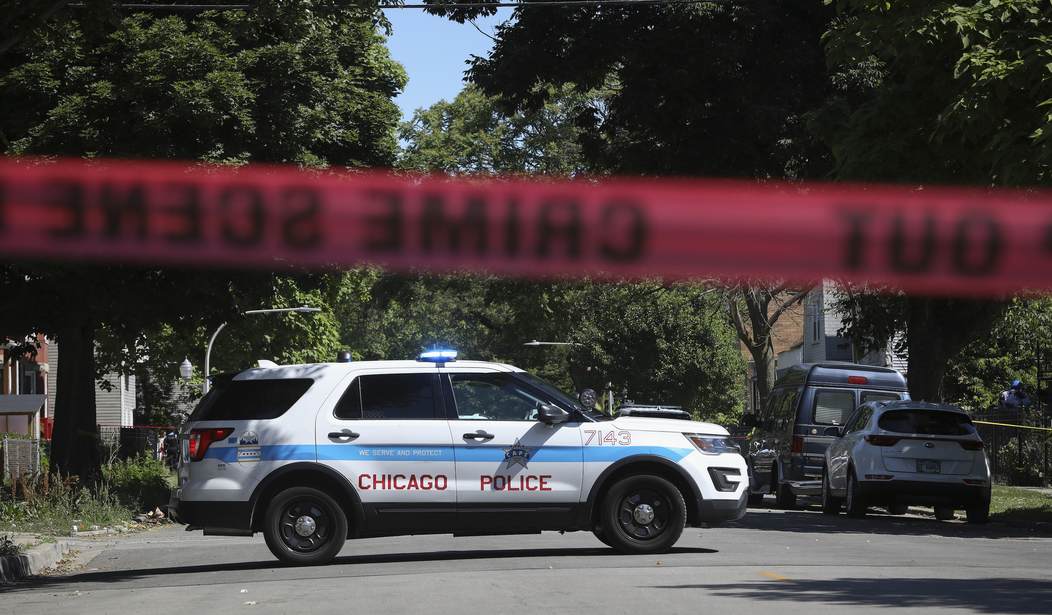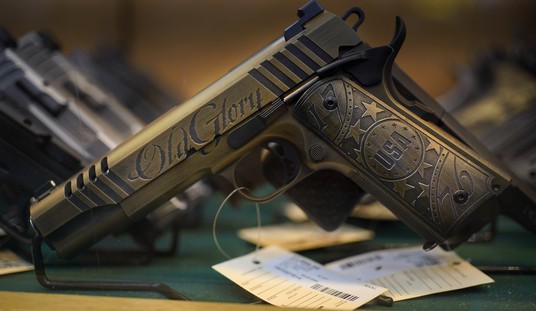While Republicans found plenty to “pounce” on in Joe Biden’s semi-coherent speech about violent crime on Wednesday, it turns out that many folks who aren’t rock-ribbed conservatives aren’t exactly swooning over the president’s remarks either. At The Atlantic, writer David Graham describes Biden’s remarks as “unsatisfying” and “meandering”, and says while Biden’s focus on gun control may make some sense from a political perspective, from a practical standpoint it won’t have much of an impact on rising violent crime rates.
Whether this focus on firearms will really affect crime is a different question. Criminologists don’t agree on the specific causes and mechanisms of the recent increase in murders, which coincided with the coronavirus pandemic and especially with protests against police violence last summer. Fighting the root causes requires understanding what they are, but in the meantime, Biden’s focus on gun trafficking might have limited effect.
“What it’s doing is trying to address the supply, and it’s not doing a thing about the demand,” Jerry Ratcliffe, a criminal-justice professor at Temple University, told me. “We have a vicious cycle. Guns on the street are fueling shootings, and more shootings are fueling more guns on the street.”
That’s a pretty astute observation, and it highlights the biggest problem with trying to use gun control as a way to fight crime. In a nation with 400-million privately owned firearms, 100-million gun owners, and a Constitution that protects the right to keep and bear them, trying to reduce crime by reducing the number of guns out there is doomed to failure.
Instead, a much more successful approach would be to use strategies that focus on reducing demand for guns among those most likely to use them in violent crimes, but while Biden has called for giving billions of dollars in federal grants to community violence prevention groups, his main focus continues to be on imposing new restrictions on legal gun owners; from universal background checks and bans on so-called assault weapons to using the ATF to crack down on home-built firearms and AR-style pistols.
Biden and his gun control allies continue to peddle the theory that the increase in violent crime in places like New York and Los Angeles is being fueled by legal gun sales in states like Arizona and Texas, but criminal justice researchers don’t seem to think that’s the case.
In the first three months of 2021, there were 983 homicides in 24 U.S. cities monitored by researchers at the University of Missouri-St. Louis for reports prepared for the National Commission on COVID-19 and Criminal Justice. The number was 193 higher than in the first quarter of last year and 324 higher than in the first quarter of 2019. Last year’s increase in homicides was likely due to the coronavirus pandemic, social unrest and other factors, according to a research report by criminal justice professor Richard Rosenfeld and graduate research assistant Ernesto Lopez Jr.
Researchers said the average homicide rate of the cities rose sharply after the police killing of George Floyd in Minneapolis in May 2020, which sparked nationwide protests. The rate dropped in the fall and the beginning of this year, but is still higher than it was before the summer of 2020.
The data is clear that the crime spike really kicked into high gear after Floyd’s death last year, but that doesn’t fit the preferred narrative of anti-gun politicians and gun control organizations, who view the increased violence as a crisis that shouldn’t go to waste.
Interestingly, the White House used the study by Rosenfeld and Lopez in its talking points on Wednesday, citing their research showing a 30% increase in homicides and an 8% increase in gun assaults in major cities last year. But the White House declared that the crime increase began 18-months ago, contradicting Rosenfeld and Lopez’s research, which showed that shootings and homicides began surging last summer, not last spring.
They examined 64 large-size cities, including the 30 cities with the highest populations in the United States, and found that homicide rates had declined in April and May compared to the three-year averages from those months in those cities.
But even by last June, Rosenfeld was wary of those trends continuing, particularly with the murder of George Floyd prompting widespread unrest throughout the country.
“We ended that piece with a strong cautionary note,” Rosenfeld said last summer. “I certainly believe that, come June, July, through the summer, we’re going to see an increase in homicide and other violent crimes in part associated with the social unrest.”
Social unrest, which began last June. Not the increase in gun sales, which began last March.
Joe Biden and his gun control pals know damn well that the record number of gun sales aren’t responsible for the soaring homicide rates in American cities, just as they know that things like universal background checks and bans on modern sporting rifles aren’t going to bring down the homicide rate. Rather than deal with the real issues, though, they’re trying to turn the Second Amendment into a scapegoat for the failures of Democrat-run cities that failed to check the violence and unrest that began last summer in the hope of getting some of their anti-gun agenda turned into law.









Join the conversation as a VIP Member